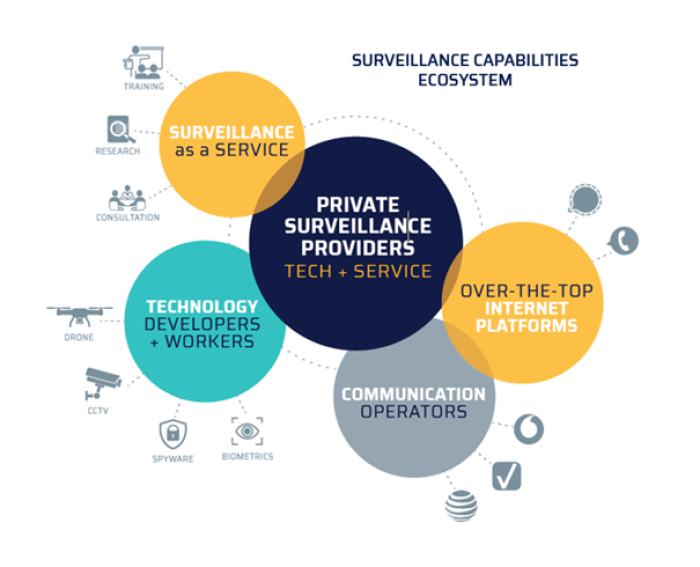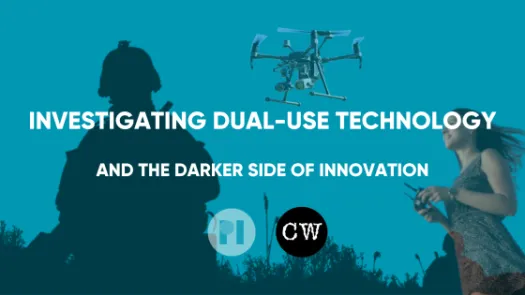
Understanding private surveillance providers and technologies
New policy paper by Privacy International and the DCAF - Geneva Centre for Security Governance Sector explores surveillance services provided by private military and security companies.
- Overview of different private surveillance technologies and services, which informs the evaluation of the extent to which they could be seen as private security providers
- There are numerous examples of how private surveillance services may have serious human rights impacts
- Existing international private military and security companies (PMSC) regulatory framework apply to private surveillance services as well, and offers effective guidance to improve private security governance in this area.
- International initiatives, industry stakeholders and states need to convene to concretely improve privatised surveillance governance

This policy paper seeks to determine the potential for the existing international private military and security companies (PMSCs) regulatory framework to support more effective regulation of surveillance services provided by the private sector.
In order to achieve this, and given that this paper addresses an issue that is at the intersection of two domains, it seeks to establish a common language and terminology between security sector governance and surveillance practitioners.
In section I, the paper offers an introduction to the different private surveillance technologies and services. In understanding the scope of surveillance capabilities, it becomes possible to evaluate to what extent they could be considered as private security services. This also becomes true when addressing the companies offering such services and technologies as private security providers.
Section II provides some examples of how surveillance impacts the right to privacy and other human rights. It highlights how infringements of the right to privacy by private surveillance providers and technologies result in chains of cause and effect on other rights (such as the right to life).
Section III observes and evaluates how existing international norms and good practices for private security regulation (namely, the Montreux Document, the International Code of Conduct and the UN Guiding Principles on Business and Human Rights) can serve as a basis for strengthening the regulation of some private surveillance providers and technologies. It further offers specific recommendations on next steps and actions that need to be taken to ensure that private surveillance services are appropriately and effectively covered and overseen by the PMSCs regulatory framework.




